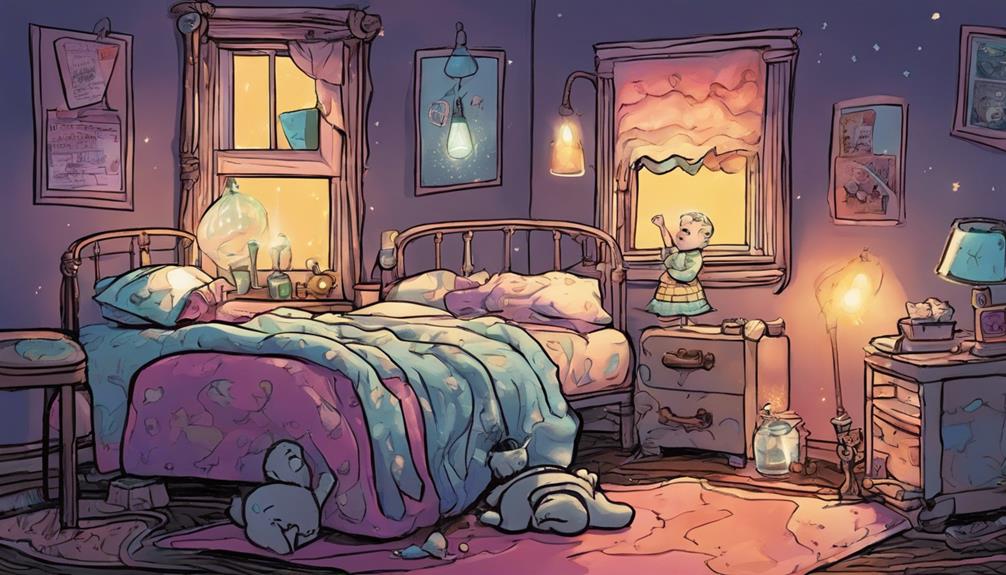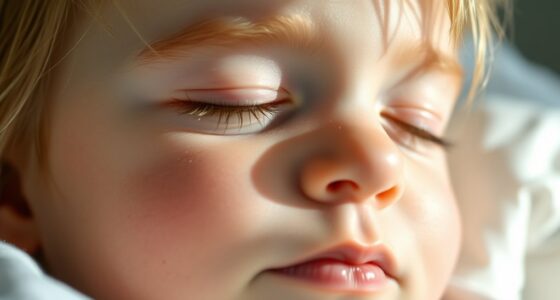You usually start losing your baby teeth around age 6. The first to go are the lower central incisors, followed closely by the upper ones. Most kids lose all 20 baby teeth by age 12, as their permanent teeth emerge. Some children may lose their teeth a bit earlier or later, with timelines varying for everyone. If your child's teeth seem to be falling out either too soon or too late, it might be worth a visit to the dentist. Understanding this process can help you navigate this exciting change and learn what to expect next. Many children experience discomfort or sensitivity during the kitten teething process, so it’s important to provide them with appropriate dental care and support. Encouraging good oral hygiene habits and regular dental check-ups can help ensure a smooth transition. As your child’s permanent teeth come in, it’s a great opportunity to educate them about the importance of taking care of their oral health for the long term.
Key Takeaways
- Baby teeth typically begin to fall out around age 6, with variations between ages 4 to 7.
- The first teeth to be lost are usually the lower central incisors.
- By age 12, all 20 baby teeth are generally lost, paving the way for permanent teeth.
- Early tooth loss (ages 4-5) may cause misalignment, necessitating a dental check-up.
Age of Tooth Loss
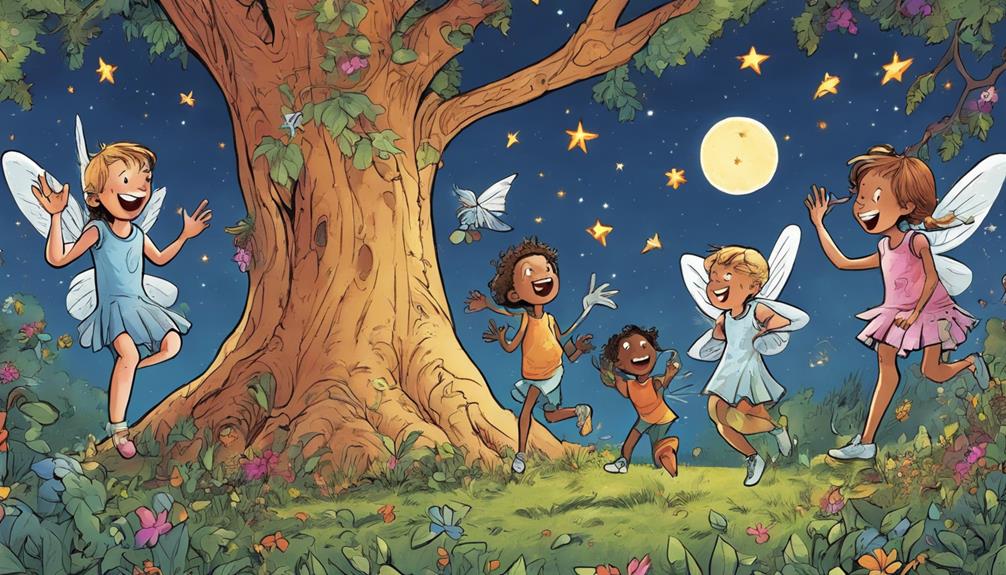
Baby teeth usually start to fall out around age 6, but you might see your child lose their first tooth as early as age 4 or as late as age 7.
Typically, the first teeth to go are the lower central incisors, followed by the upper central incisors and lateral incisors. This process of losing baby teeth marks an important change in your child's development, paving the way for their permanent teeth.
When your child loses a tooth, it can be both exciting and a bit nerve-wracking. It's natural for you to wonder if they're on track, especially around age 6, when most children experience their first tooth loss.
By the time they reach their early teen years, around age 13, they should have a complete set of permanent teeth, having lost all their baby teeth by age 12. Individual timelines can vary, so keep in mind that every child's journey through tooth loss is unique.
Celebrate each milestone with them, and reassure them that losing teeth is a normal part of growing up!
Number of Baby Teeth
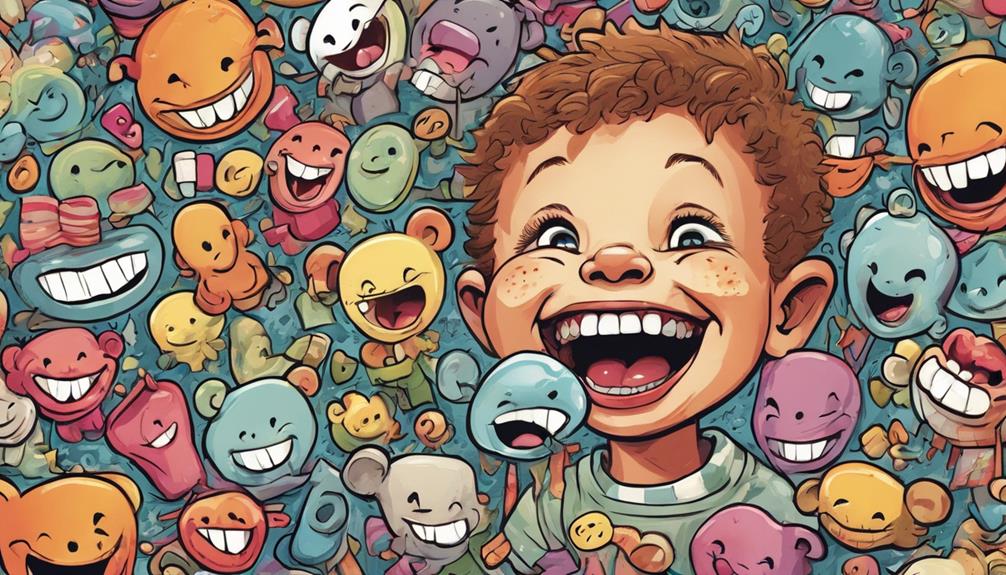
Children typically develop 20 primary teeth, which play an essential role in their early dental health and development. These baby teeth usually start to erupt around 6 months of age, marking an exciting milestone for you and your child. By the time your child celebrates their first birthday, they'll likely have several baby teeth in place, aiding in chewing and speech development.
As your child grows, they'll eventually lose their first tooth around the age of 6. This is part of a natural process where children start losing their primary teeth to make way for permanent teeth. Typically, all 20 baby teeth will fall out by the early teen years. The last of these primary teeth are generally lost by age 12, coinciding with the emergence of adult teeth.
It's important to monitor your child's dental visits during this time. If your child retains baby teeth longer than expected, it could disrupt the growth of permanent teeth. In such cases, a dental evaluation might be necessary to guarantee everything's on track. Keeping an eye on this change will help guarantee a healthy mouth for your child's future.
Order of Tooth Loss
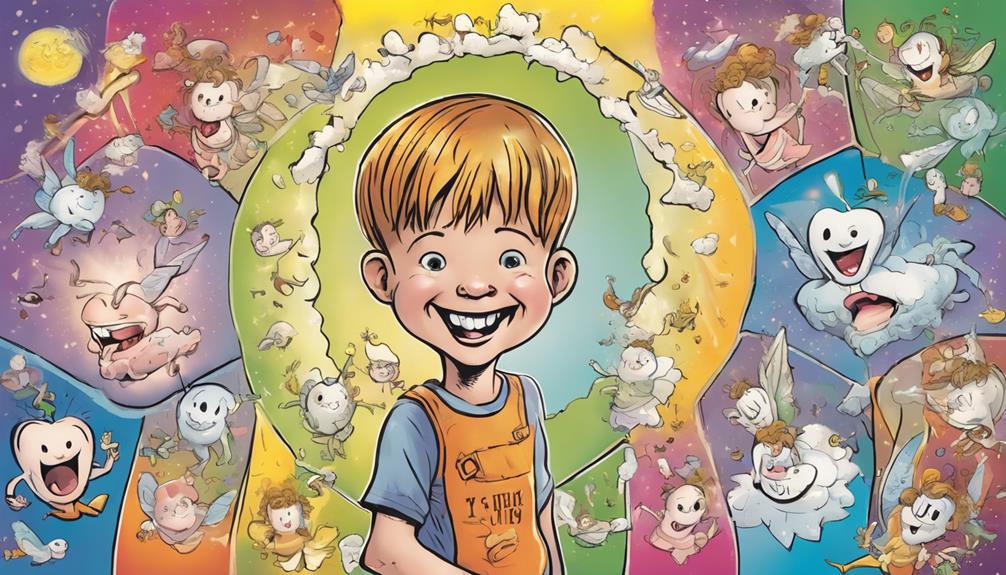
The order in which teeth are lost can greatly impact your child's dental development and the timing of permanent teeth eruption.
Typically, your child will first lose the lower central incisors, usually around the ages of 6 to 7. Next, the upper central incisors follow suit, often falling out at a similar age. The lateral incisors usually come next, with loss occurring between 7 and 8 years old.
As your child approaches the ages of 9 to 12, they'll lose their canines, and the first premolars will shed from 9 to 11 years old. This process continues with the second premolars, typically lost between the ages of 10 and 12.
Early and Late Tooth Loss
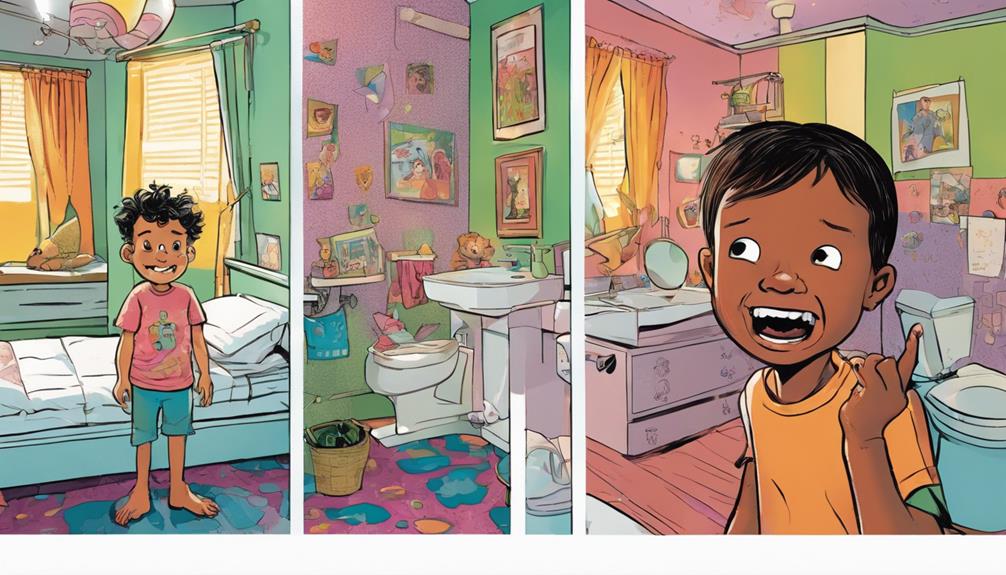
Early and late tooth loss can greatly impact your child's dental health, so it's vital to understand what to expect during this phase.
Early tooth loss, which can occur around ages 4 or 5, might lead to misalignment of permanent teeth if not monitored closely. If your child loses a baby tooth before age 4, it's considered early and usually requires a dental evaluation to guarantee the proper development of their permanent teeth.
On the other hand, late tooth loss, happening after age 7, is typically acceptable and doesn't usually indicate any major issues unless your child experiences pain or discomfort. However, if you notice retained baby teeth that don't fall out within the expected timeline, it's important to consult a dentist. These retained teeth may disrupt the eruption of permanent teeth and could lead to further complications.
To stay ahead of potential problems, regular dental check-ups are vital. They help monitor the timing of tooth loss and address any concerns regarding early or late shedding. Being proactive in your child's dental care during this phase can set them up for a healthier smile in the future.
Signs of Tooth Loss
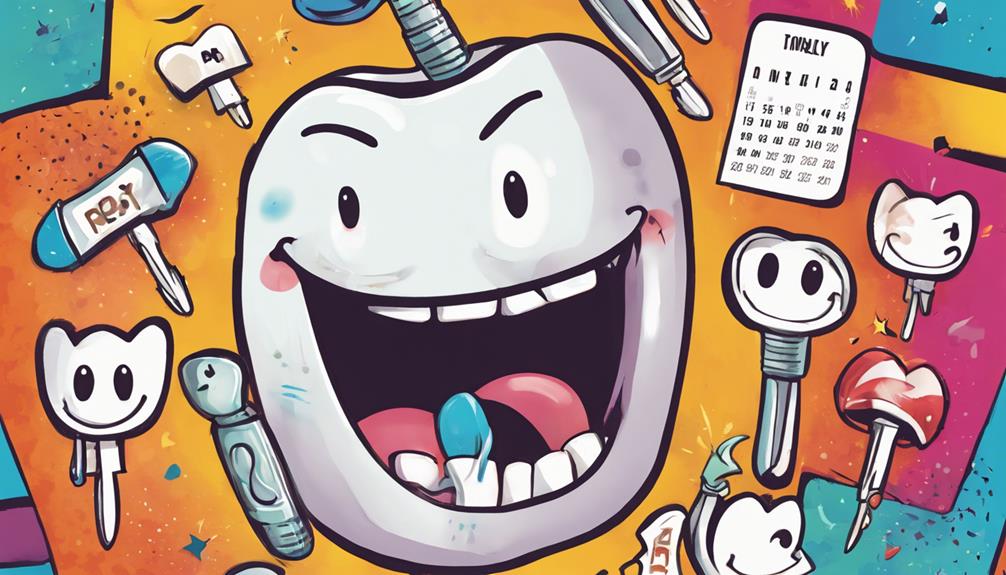
Loose teeth are a clear sign that your child is about to lose a baby tooth, often noticeable through gentle wiggling or movement. As you monitor their child's smile, you'll likely see gaps appearing where baby teeth have fallen out, signaling the arrival of adult teeth. When baby teeth become loose, slight movement is typical, indicating they're ready to be shed.
In some cases, your child might experience discomfort or pain in their mouth, suggesting a tooth is about to come out. If the discomfort persists, it's a good idea to schedule a dental check-up to verify everything is progressing normally.
You may also notice shifting teeth as new permanent teeth begin to erupt, which can further highlight the change from baby teeth to adult teeth. These signs of tooth loss are natural and part of growing up.
Frequently Asked Questions
Is It Normal for a 5 Year Old to Lose Teeth?
Yes, it's normal for a 5-year-old to lose teeth. You might notice your child losing their first tooth soon, often around this age. Just keep an eye on their dental health for any concerns.
When Do Teeth Fall Out Chart?
You can find a teeth fall out chart online that outlines the typical ages for losing baby teeth. Generally, it starts around age 6, with variations based on individual development and dental health.
Do You Lose Baby Teeth at 12?
You might lose baby teeth around age 12, but it's not a strict rule. Some kids shed theirs earlier, while others might hold onto them longer. Each child's timeline varies, so don't worry too much!
Why Do I Still Have Baby Teeth at 14?
If you still have baby teeth at 14, it could be due to genetics or the absence of permanent teeth. It's best to consult your dentist to guarantee your oral health remains ideal.
Is the Timing of Baby Teeth Loss in Kittens Similar to Humans?
The timing of when kittens lose baby teeth is similar to humans in some ways. Kittens typically start losing their baby teeth at around 3 to 4 months old, while humans begin to lose their baby teeth at 6 to 7 years old. Both species go through a similar process of teething and permanent tooth eruption.
Conclusion
As you navigate the journey of your child's dental development, remember that tooth loss is a rite of passage, much like the shift from childhood to adolescence.
Each baby tooth they lose paves the way for a stronger, more resilient adult smile.
Just as Peter Pan left Neverland, your little one is stepping into a new chapter.
Embrace this exciting time, and trust that every lost tooth brings them closer to their grown-up self.
